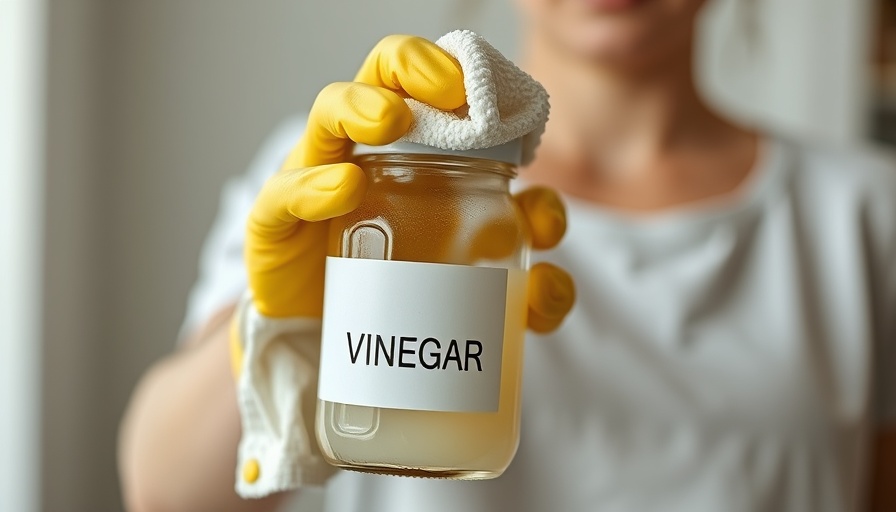
Why Vinegar Isn't Always the Best Choice for Cleaning
Vinegar has gained a reputation as a miracle cleaner among DIY enthusiasts, often celebrated for its affordability and natural non-toxic properties. However, as effective as it can be for various household chores, there are specific items that vinegar can damage. For California homeowners, where investments in beautiful spaces are considerable, avoiding vinegar mishaps is essential. This article highlights certain household items and materials to steer clear of when reaching for vinegar.
The Negative Impact of Vinegar on Natural Stone Countertops
First on the list are stone countertops. Many owners of stunning granite and marble surfaces may not realize that vinegar is highly acidic and can cause etching and dulling over time, ruining the finish. Instead of vinegar, it’s recommended to use mild soap and water or pH-neutral cleaners specifically designed for stone. “We've seen clients frustrated by the loss of sheen on their granite,” notes Alicia Sokolowski from AspenClean, emphasizing the need for proper care.
Egg Spills: A Sticky Situation
Dealing with a raw egg spill? Reaching for vinegar might seem instinctive, but it will only make things worse! Vinegar causes the proteins in the egg to coagulate, creating a sticky mess that is significantly harder to clean. The best approach is to scoop up the bulk of the egg and clean the surface with dish soap and warm water instead.
The Hidden Damage to Electronic Screens
Your phone or TV screen may look like it could use a good cleaning, but applying vinegar is a surefire way to damage it. The acid in vinegar can degrade protective coatings, leading to cloudiness or streaks. Avoid this mistake by using a cleaner specifically designed for screens or simply distilled water on a microfiber cloth.
Stainless Steel Appliances: Maintain That Shine
Stainless steel appliances are a staple in many kitchens, yet vinegar can dull their sheen over time. While this won’t happen after a single use, repeated application can weaken the protective finish, resulting in unsightly cloudiness. Instead, opt for a soft cloth dampened with soap and water to maintain the shine without the risk of damage.
Dishwashers and Washing Machines: A Risky Mix
It may come as a surprise, but using vinegar in dishwashers and washing machines can lead to long-term issues, including damaging rubber seals and creating leaks. While infrequent use for deodorizing might be okay, it’s always best to follow manufacturer recommendations or resort to gentler alternatives like baking soda.
Future Trends in Eco-Friendly Cleaning Solutions
As the interest in eco-friendly cleaning products grows, homeowners may wonder what alternatives exist. The shift towards plant-based formulas and solutions safe for a wider range of surfaces is becoming increasingly popular. Knowing what to avoid when it comes to everyday products can help consumers make informed decisions and adapt to cleaner, safer environments.
Common Myths About Vinegar in Cleaning
Despite its reputation, some common misconceptions surround the use of vinegar. Many people believe that its natural properties make it universally safe for all surfaces. Educational awareness about its potential drawbacks is crucial for homeowners, particularly in urban Californian settings, where diverse housing materials are prevalent.
Conclusion: Careful Cleaning Choices Matter
As California homeowners navigate cleaning decisions, understanding what not to use with vinegar is just as critical as knowing its benefits. This knowledge not only helps prevent property damage but also ensures that cleaning efforts are effective. The move towards sustainable cleaning solutions strengthens communities, supporting local economies and eco-conscious lifestyles.
So, before you grab that vinegar bottle, consider the item at hand and choose wisely!
 Add Row
Add Row  Add
Add 




Write A Comment